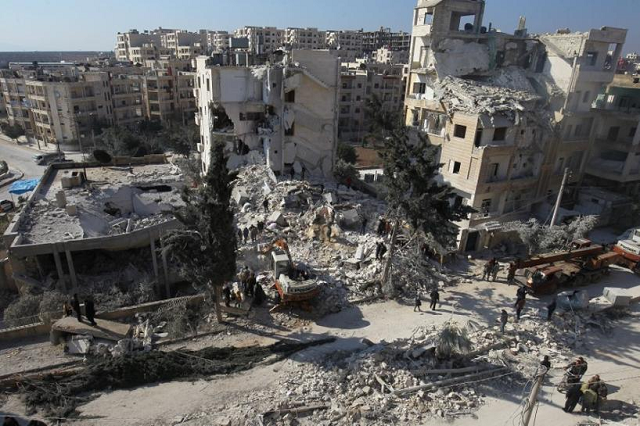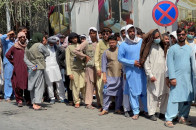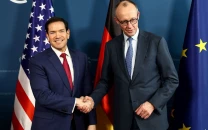Turkey rejects Russian explanation over Idlib attack
Turkish defence minister says the strike took place despite coordination with Russian officials

PHOTO: Reuters
"I want to state that during this attack, there were no armed groups around our military units," Turkish Defence Minister Hulusi Akar said in televised remarks.
Russia's defence ministry had said that that the Turkish troops "were in the battle formations of terrorist groups" and had not communicated their presence in the area "where they should not have been".
But Akar said Thursday's strike in the northwestern province took place "despite coordination with Russian officials", adding that the bombardment continued despite "warning" of the Turkish troops' presence.
He said ambulances were also hit.
33 Turkish soldiers killed in Syria's Idlib
The latest incident has raised further tensions between Ankara and Moscow, whose relationship has been tested by violations of a 2018 deal to prevent a regime offensive on rebel-held Idlib.
As part of the agreement, Ankara set up 12 observation posts in the province but Syrian President Bashar al-Assad's forces - backed by Russian air power - have pressed on with a devastating assault on Idlib.
While Damascus ally Russia accuses rebel-backer Turkey of supporting "terrorists", Ankara has repeatedly urged Moscow to stop the regime violating the ceasefire.
The Turkish military immediately retaliated against regime targets, and Akar said over 200 regime targets had come under heavy fire from armed drones and other weapons.
Akar claimed over 300 regime elements had been "neutralised" while Turkey destroyed dozens of Syrian helicopters, tanks and howitzers.
Thirty-two soldiers were also wounded in Thursday's air strike.



















COMMENTS
Comments are moderated and generally will be posted if they are on-topic and not abusive.
For more information, please see our Comments FAQ